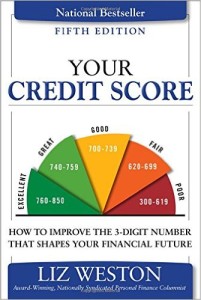 Today’s top story: The 4 perks of Solo 401(k) for business owners and freelancers. Also in the news: How to monitor your credit in exactly 250 words, how to eat healthy on a budget, and the best places to retire in 2017.
Today’s top story: The 4 perks of Solo 401(k) for business owners and freelancers. Also in the news: How to monitor your credit in exactly 250 words, how to eat healthy on a budget, and the best places to retire in 2017.
4 Perks of Solo 401(k) for Business Owners and Freelancers
Retirement savings for sole employees.
How to Monitor Credit in (Exactly) 250 Words
Short and sweet.
How to Eat Healthy on a Budget
You don’t have to live on ramen.
The Best Places To Retire In 2017
Where would you like to go?

 The Consumer Financial Protection Bureau today ordered Equifax and TransUnion to pay more than $23 million in restitution and fines for deceiving consumers about the usefulness and actual cost of credit scores they sold to consumers. Regulators said the bureaus also lured customers into expensive subscriptions when people thought they were getting free scores.
The Consumer Financial Protection Bureau today ordered Equifax and TransUnion to pay more than $23 million in restitution and fines for deceiving consumers about the usefulness and actual cost of credit scores they sold to consumers. Regulators said the bureaus also lured customers into expensive subscriptions when people thought they were getting free scores. Today’s top story: 4 ways you can protect your credit score over the holidays. Also in the news: Giving Tuesday and beyond, why you should think twice before grabbing certain Black Friday deals, and the used cars with the best discounts on Black Friday.
Today’s top story: 4 ways you can protect your credit score over the holidays. Also in the news: Giving Tuesday and beyond, why you should think twice before grabbing certain Black Friday deals, and the used cars with the best discounts on Black Friday.